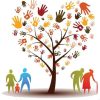
Memorial Day is traditionally a time of honor and remembrance, dedicated to the brave men and women who have lost their lives serving their country. While it is a day of national pride and gratitude, it can also bring profound grief and reflection for those who have lost loved ones, whether in military service or otherwise. This blog explores how we can cope with loss and use remembrance as a healing tool, not only on Memorial Day but throughout the year.
Understanding the Grief of Loss
Grief is a natural response to loss and is as individual as the person experiencing it. It is a deeply personal experience that varies significantly from person to person. The pain of losing someone, whether a military hero, family member, or friend, can feel overwhelming. Memorial Day may heighten these emotions, as public commemorations stir personal memories and reflections. It’s important to acknowledge that grief does not follow a linear path; it can ebb and flow, particularly on days of remembrance. It’s important to understand that experiencing a wide range of emotions during this time is normal, including sadness, anger, loneliness, or even relief and peace. Recognizing and accepting these feelings as part of your unique grieving process is crucial.
Coping Strategies for Grief
- Allow Yourself to Feel: Give yourself permission to experience your feelings without judgment. Whether it’s sadness, anger, relief, or a mix of emotions, they are all valid. Recognizing and accepting your feelings is a crucial step in the healing process.
- Share Your Stories: Sharing stories about the deceased can be a powerful way to honor their memory. Whether it’s speaking at a Memorial Day event, posting on social media, or simply reminiscing with family and friends, sharing helps keep their memory alive and can provide comfort.
- Participate in Commemorative Activities: Engaging in activities that commemorate the day can provide a structured way of coping. Attending a Memorial Day service, visiting cemeteries, or even participating in a moment of silence at home can all serve as acts of remembrance and healing.
- Create a Ritual: Personal rituals can offer a profound sense of connection and continuity. This might involve lighting a candle, laying flowers, or displaying photographs around your home. These acts can serve as personal tributes and help integrate the memory of loved ones into your day-to-day life.
- Connect with Others: Grief can feel isolating, but connecting with others who are experiencing similar emotions can provide a sense of community and support. Consider reaching out to support groups or community organizations that observe Memorial Day.
- Seek Professional Help: If you find that your grief is too much to bear alone, or if it persists in ways that significantly impact your daily functioning, seeking help from a mental health professional can be beneficial. Therapists can offer strategies to manage intense emotions and help navigate the path through grief.
Remembrance as a Tool for Healing
Remembrance plays a critical role in the healing process. It helps individuals process loss, celebrate lives, and maintain a connection with those who have passed. Here are a few ways remembrance can be therapeutic:
- Preserving Memories: Keeping the legacy of loved ones alive can facilitate healing. This can be through photo albums, memorial videos, or even writing letters to the deceased.
- Community Involvement: Engaging in community activities, such as Memorial Day parades or services, can offer a sense of solidarity and collective grieving that may be comforting.
- Acts of Service: Participating in or organizing community service projects in memory of a loved one can transform grief into a positive force for change in the community.
Moving Forward
While grief may never fully disappear, gradually, the acute pain of loss becomes a part of who we are. Memorial Day reminds us to honor those who have given their lives and to cherish the memory of our personal losses. It’s about respect, remembrance, and finding a way to move forward with the strength and courage of those we have lost.
Conclusion
As we observe Memorial Day, let us find comfort in the acts of remembrance and honor the memories of those who have passed. Coping with loss is a deeply personal journey, and incorporating deliberate acts of remembrance can help us navigate our grief with resilience. Remember, you are not alone in your grief, and support is always available, helping us to heal and remember together.



